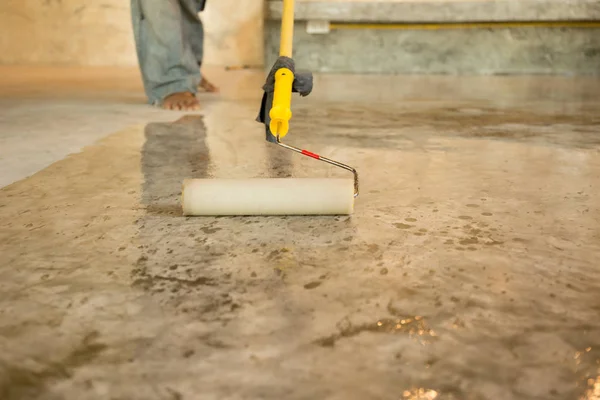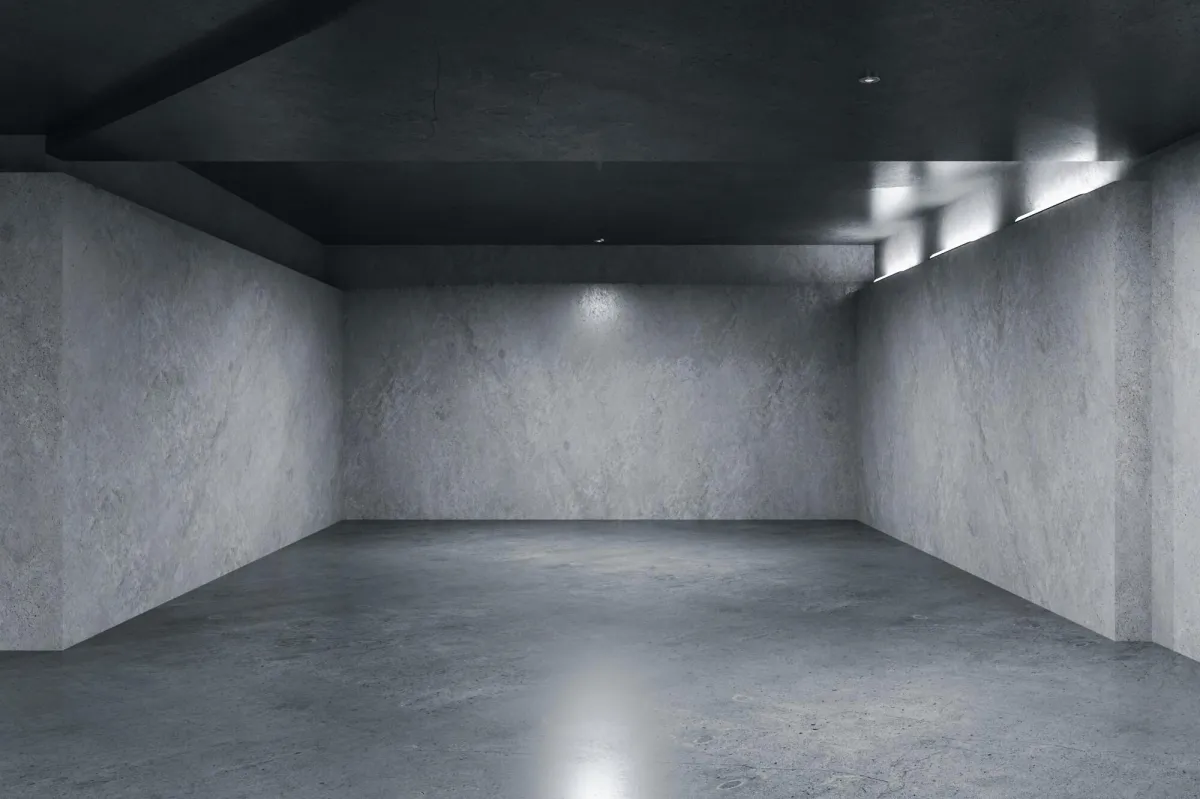
Concrete Stain and Seal Services in Lake City and Surrounding Areas
Concrete surfaces across North Florida and South Georgia face challenges from humidity, heat, and heavy use. Whether you’re in Lake City, Orange Park, St. Augustine, St. Johns, Valdosta, Middleburg, Alachua, Jacksonville, Green Cove Springs, or Gainesville, professional concrete stain and seal services can dramatically improve the look, safety, and longevity of your concrete driveways, patios, pool decks, and garage floors.
What Are Concrete Stain and Seal Services?
Concrete staining infuses long-lasting pigments directly into the surface, while sealing adds a protective moisture- and UV-resistant coating that helps prevent cracking, fading, and mold growth. When used together, staining and sealing not only enhance the appearance of concrete surfaces but also provide long-term durability, making them ideal for the hot, humid, and storm-prone climate of Florida and South Georgia.
How Long Do Epoxy Floor Coatings Last in Humid Climates Like Lake City or Jacksonville?
Epoxy coatings are known for their strength and durability, but in humid environments such as Lake City, Gainesville, or Green Cove Springs, moisture can shorten their lifespan. While epoxy may last 10–15 years in drier regions, in humid climates it typically lasts around 5–10 years with the right upkeep. This makes ongoing maintenance and proper installation especially important for long-term performance in these areas.
How Fast Do Polyaspartic Coatings Cure Compared to Epoxy?
Polyaspartic coatings are much faster to cure than epoxy. They generally set within four to six hours, allowing foot traffic on the same day, and are ready for vehicles within 24 hours. Epoxy coatings, by contrast, require 24–48 hours for light use and may take up to seven days to fully harden. For high-use areas like Valdosta or Orange Park, where downtime is a concern, polyaspartic coatings often provide a more convenient solution.
Are Epoxy Coatings UV-Stable for Outdoor Surfaces in St. Augustine or Middleburg?
Standard epoxy coatings are not UV-stable and tend to yellow and fade when exposed to sunlight. Even when a UV-stable topcoat is added, some discoloration may still occur over time. For outdoor surfaces such as patios or pool decks in St. Augustine, Middleburg, or Jacksonville Beach, polyaspartic or polyurethane coatings are better choices because they offer greater resistance to UV damage and maintain their appearance for longer.
What’s the Cost Difference Between Epoxy and Polyaspartic Coatings?
Epoxy coatings are generally more budget-friendly, typically costing between $4 and $7 per square foot installed, but they do require more downtime for curing. Polyaspartic coatings cost a bit more, ranging from $6 to $10 per square foot, but they cure significantly faster and deliver superior durability. In high-traffic areas such as Gainesville or St. Johns, many property owners find that the higher upfront investment in polyaspartic coatings pays off through longer performance and less disruption.
How Often Do Epoxy Coatings Need Maintenance?
Epoxy coatings usually need resealing every three to five years to maintain their appearance and chemical resistance, especially in high-use areas. However, in humid climates like Lake City or Alachua, more frequent maintenance may be necessary because moisture can accelerate wear or cause adhesion issues. Keeping up with proper care can help extend the life of epoxy-coated surfaces in these challenging environments.
How Important Is Surface Preparation for Epoxy Flooring?
Surface preparation is one of the most critical steps in the success of epoxy flooring. This process involves grinding or shot blasting the concrete to remove contaminants and create the proper textured surface for bonding. It is equally important to ensure the concrete is completely dry before applying epoxy, as any trapped moisture can lead to bubbling or adhesion failure. In damp regions such as Green Cove Springs or St. Johns, careful surface prep is essential for a long-lasting finish.
How Sensitive Is Epoxy to Temperature and Humidity?
Epoxy coatings are highly sensitive to temperature and humidity during application. Cold weather slows the curing process and, in some cases, can prevent the coating from curing altogether. High humidity may cause bubbles or adhesion problems, while extreme temperatures in either direction can disrupt the curing process and affect the final finish. In areas like Valdosta, Jacksonville, or St. Augustine, where climate conditions vary, polyaspartic coatings are often more reliable because they are less sensitive to environmental factors.
Is Epoxy Durable Enough for Heavy Use in Commercial Spaces?
While epoxy coatings create a tough surface that stands up well to industrial use, they are more rigid and less flexible than polyaspartic coatings. This rigidity can make epoxy prone to cracking when exposed to heavy impacts or significant temperature fluctuations. Polyaspartic coatings, on the other hand, provide greater flexibility and are better suited to environments with heavy traffic and varying conditions, such as warehouses in Jacksonville, auto shops in Lake City, or retail spaces in Gainesville.
How Does Sealing Help Prevent Mold, Mildew, and Slip Hazards?
In humid regions like Lake City and St. Augustine, sealing concrete is essential for preventing mold and mildew. Sealants repel water and block the moisture absorption that allows spores to thrive. A sealed surface is also smoother and less porous, making it easier to clean. In addition, sealers can be finished with textured or matte options to improve traction and reduce slip hazards, which is particularly valuable for pool decks in Middleburg or patios in Orange Park.
Can Staining and Sealing Increase Property Value?
Yes, staining and sealing can significantly increase property value. Decorative concrete surfaces enhance curb appeal while reducing long-term maintenance, making properties in Alachua, St. Johns, and Gainesville more appealing to buyers. Well-maintained, attractive concrete surfaces can set a home or commercial property apart in competitive real estate markets.
What’s the Process for Concrete Stain and Seal in North Florida and South Georgia?
The stain and seal process begins with preparation, which includes cleaning, degreasing, repairing cracks, and ensuring the surface is dry. Once prepared, the stain is applied using rollers or sprayers, allowed to penetrate, and then neutralized and rinsed to achieve the desired finish. After staining, sealers are applied in thin, even coats to protect the surface. Curing time varies by product, with polyaspartic coatings drying much faster than epoxy.
Which Coating Should You Choose?
Epoxy is often the best choice for property owners seeking a budget-friendly solution for spaces with moderate traffic. Polyaspartic coatings, however, are ideal for high-traffic, outdoor, or commercial settings where UV stability, flexibility, and fast curing are important. For homeowners and businesses in Lake City, Orange Park, St. Augustine, St. Johns, Valdosta, Middleburg, Alachua, Jacksonville, Green Cove Springs, and Gainesville, selecting the right stain and seal system ensures your concrete surfaces remain both beautiful and durable against Florida and Georgia’s demanding climate.
Final Thoughts
Concrete stain and seal services are one of the most effective ways to protect and beautify concrete surfaces in Lake City, Orange Park, St. Augustine, St. Johns, Valdosta, Middleburg, Alachua, Jacksonville, Green Cove Springs, and Gainesville. Whether you choose epoxy or polyaspartic coatings, the key to long-lasting results lies in proper surface preparation, product selection, and professional application.
Epoxy remains a reliable and cost-effective choice for many residential and commercial spaces, though it does require careful maintenance in humid climates. Polyaspartic coatings, while more of an investment, deliver faster curing times, better UV stability, and greater flexibility, making them a top choice for driveways, garages, patios, and commercial flooring in North Florida and South Georgia.

How long does stained and sealed concrete last in Lake City’s climate?
With proper installation and maintenance, stained and sealed concrete surfaces in Lake City can last 5–10 years or longer. Resealing every 2–4 years helps protect against humidity, UV rays, and heavy traffic.
Can concrete stain and seal help prevent mold and mildew?
Yes. Sealers create a protective barrier that repels moisture and reduces the risk of mold, mildew, and algae growth, which is especially important in Lake City’s humid environment.
What’s the difference between acid-based and water-based stains?
Acid-based stains chemically react with concrete to create natural, variegated tones, while water-based stains offer a wider color palette and more consistent coverage. Both can be sealed for long-term protection.
How much do concrete stain and seal services cost in Lake City?
Most residential projects range from $3 to $7 per square foot, depending on the size, condition of the concrete, and design complexity. Commercial or heavy-duty coatings may range higher.
Do I need professional service, or can I DIY stain and seal my concrete?
DIY is possible but risky. Without proper surface preparation and sealing techniques, results may fade, peel, or fail early. Professional contractors in Lake City ensure correct application, durability, and warranty-backed results.
